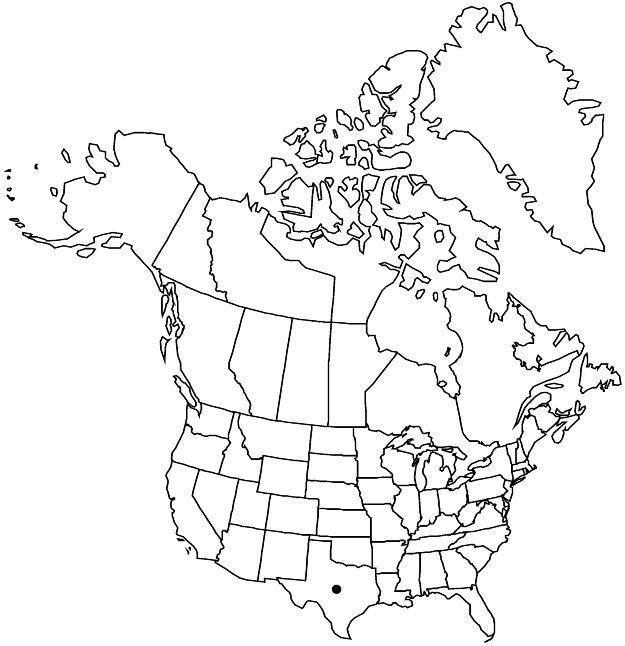Glossopetalon texense
Proc. Biol. Soc. Wash. 55: 112. 1942.
Shrubs forming relatively tall mounds or upright, 25–200 cm. Stems: branchlets mostly loosely ascending, green to yellowish green or grayish green through 2d year, slender to relatively stout, 0.5–1.2 mm diam.; bark of older branches dark gray, sometimes with black patches; tips not or weakly spinescent; glabrous. Leaves: stipules absent; petiole base persistent, usually becoming whitened or light brown after leaf has been shed, occasionally turning dark reddish purple to nearly black, ± expanded and thickened, sometimes glandular, sometimes ciliolate; blade oblanceolate to broadly oblanceolate, 6–20 × 3–5 mm, margins (and midvein) ± thickened, apex rounded to acutely pointed, sometimes mucronulate, mucro 0.1–0.4 mm, glabrous. Inflorescences axillary, usually of solitary flowers, rarely 2–3-flowered. Flowers: sepals (4–)5, ovate, 1.5–2.5 mm, equal, tips not spinescent; petals (4–)5, narrowly elliptic-oblanceolate, sometimes oblanceolate, 5–7 × 0.4–0.9(–1.5) mm; stamens 7–9, in 1 equal series. Follicles 1, broadly ovoid to broadly obovoid, 4–5 mm, moderately to strongly striate, glabrous.
Phenology: Flowering Apr–Jun(–Oct).
Habitat: Crevices and ledges of limestone and chalk cliffs, narrow ridge tops, and adjacent steep slopes
Elevation: 300–500 m
Discussion
Of conservation concern.
Glossopetalon texense is known only from along stretches of the Devil’s (Val Verde County) and Nueces (Uvalde County) rivers in Texas. Although M. R. Ensign (1942) described the petals as lanceolate and 1.5 mm wide, specimens examined during the present study had flowers with more slender petals; it is difficult to separate from G. spinescens.
Selected References
None.
